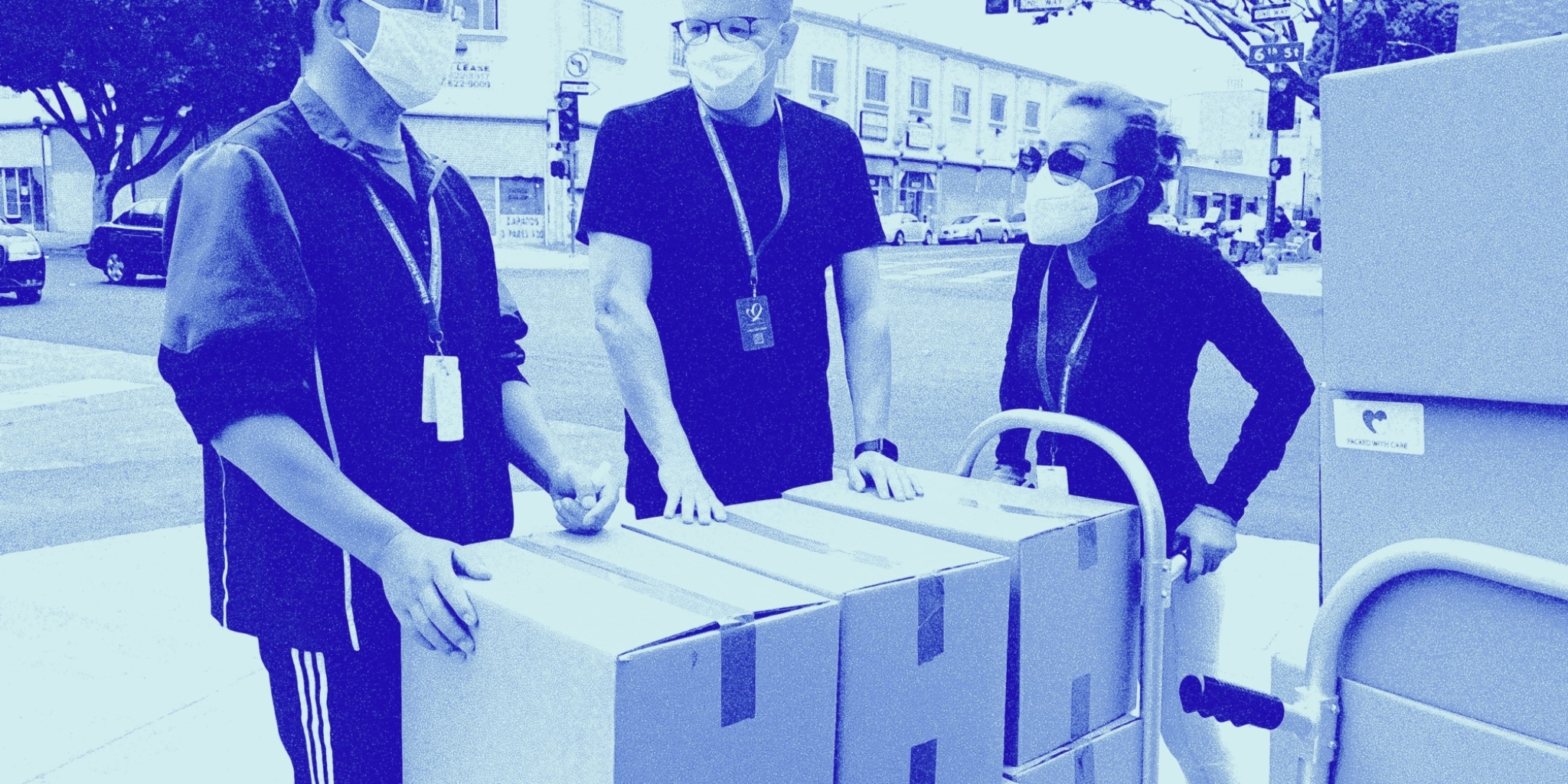Moments of Realignment
Insight:
Moments of crisis are moments of realignment.

Download the Full Report
Building Power Through Mutual AidMutual aid is an important strategy during crisis moments. It’s time to rethink whether and how mutual aid can play a transformative role in our organizing.
When the COVID-19 pandemic hit the United States in early 2020, millions of Americans across the country were suddenly out of work and unable to afford food, rent, and other basic needs — and there were very few sources of help available. Out of that necessity, hundreds of groups immediately went into action to meet those needs for their community members directly. Many of these were base-building organizations who were adopting mutual aid as a practice for the first time or scaling up their integrated model of mutual aid and power-building.
Organizations from across the country working in a diverse range of communities experimented with mutual aid. Some were critical short-term programs that ran their course as pandemic conditions eased; while others have integrated — or even centralized — their mutual aid efforts into their organizational strategies moving forward.
We’re entering a phase of predictable emergencies, and in the coming years, it will be increasingly necessary to deploy mutual aid during crisis moments. Those moments can be times of fast-moving emergency that require a rapid response, as with the COVID-19 pandemic and climate disasters, or moments of repression, as with abortion bans and bans on gender-affirming care. At times, as with the case of state repression against mass protest movements, they are both.
There is reason to take a fresh look at whether and how to better integrate mutual aid into power-building: the growth in support for authoritarianism in the U.S., an escalation of state repression; the increase in both the number and intensity of climate change-related emergencies; and the continuing economic precarity and an ever-fraying social safety net. These interlocked crises demand that we show up for people in need, even as we move toward structural solutions.